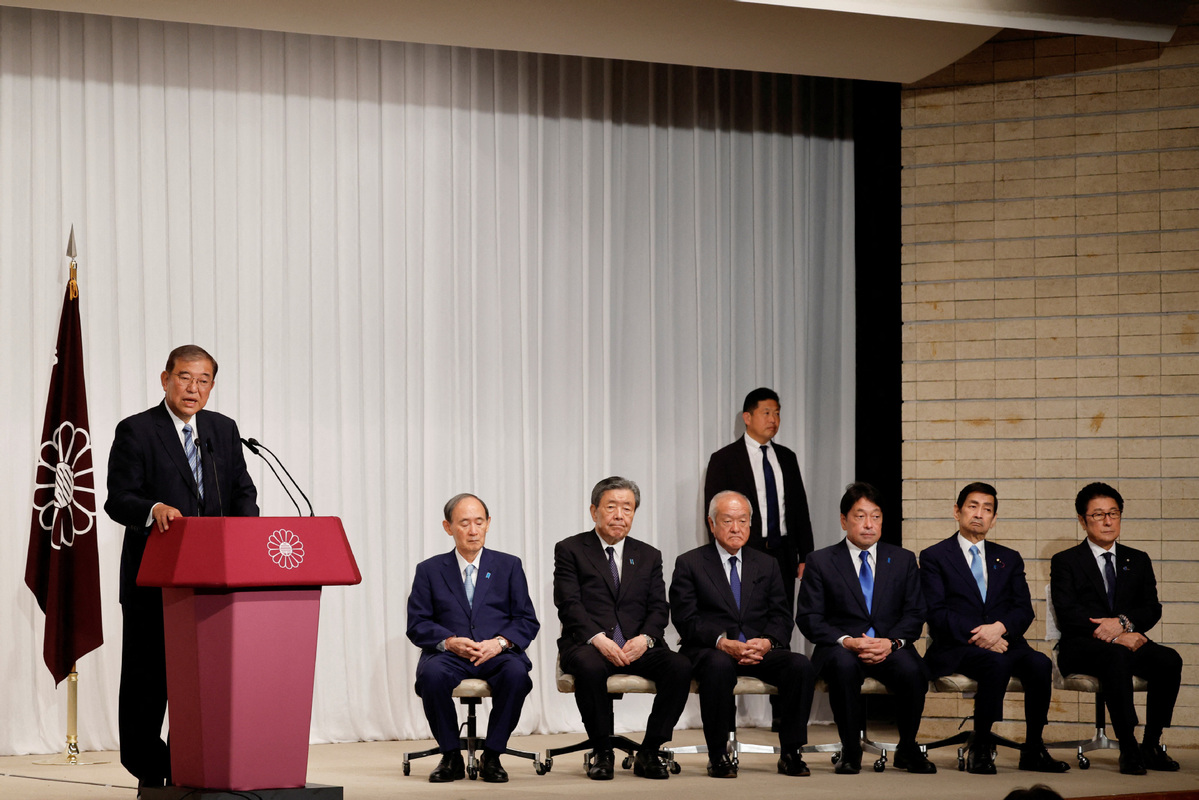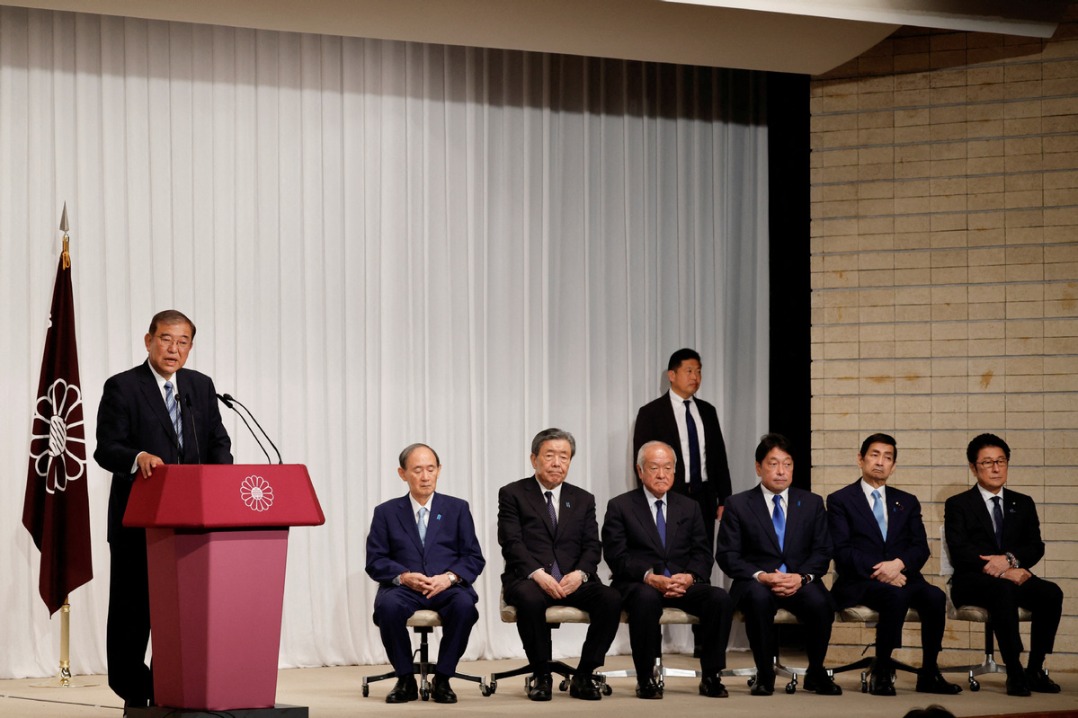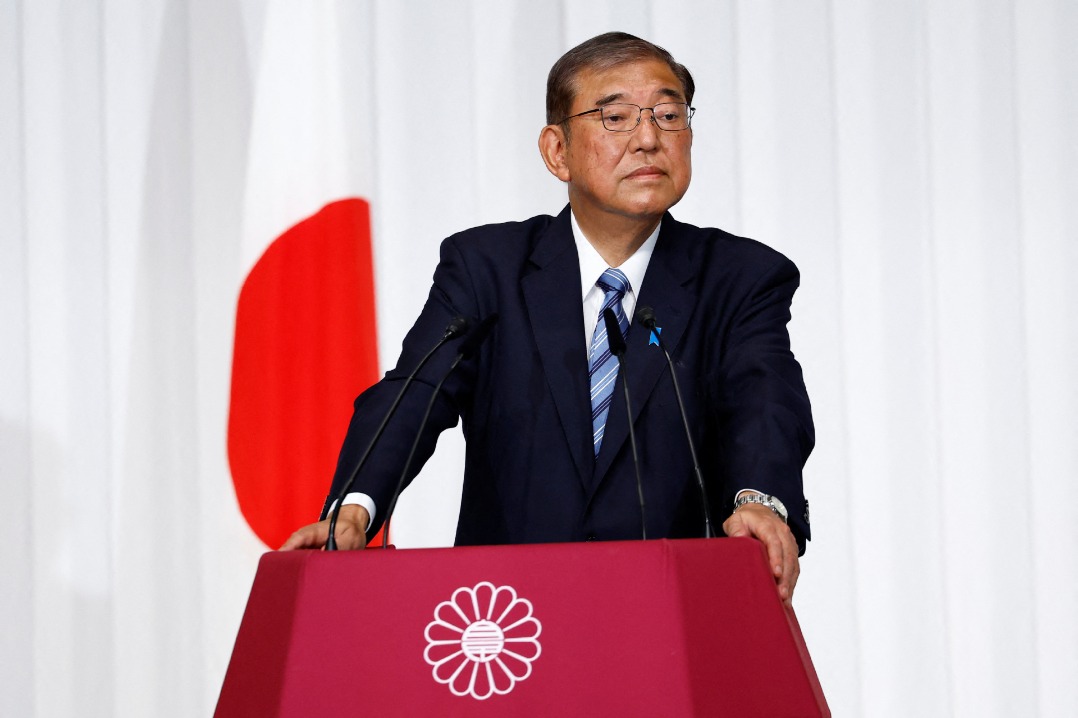Japan's ruling coalition loses majority in election
LDP's defeat shows 'public outrage' and distrust over financial scandal: Experts


Japan's ruling Liberal Democratic Party, or LDP, and its coalition partner Komeito suffered a major defeat in the general election, highlighting the public's deep mistrust and anger over the LDP's slush fund scandal.
According to the election results released on Monday, opposition parties and others secured 250 seats, surpassing the majority threshold of 233, while the ruling coalition held a combined total of 215 seats — 191 for the LDP and 24 for Komeito. The LDP's seat count plummeted from 247 before the election to 191, whereas the main opposition, the Constitutional Democratic Party of Japan, or CDP, saw a sharp increase from 98 seats to 148.
"The public's message in this election is a definitive call to break away from the LDP's corrupt politics and seek a genuine change in government," said Kumiko Haba, professor emeritus at Aoyama Gakuin University.
Haba said, "This general election was groundbreaking as it captured a rare moment of public outrage in a society typically hesitant to confront authority."
The public's will in this election appears to signal a desire for the LDP to temporarily step down from power. If the LDP attempts to sustain a majority by incorporating independent candidates with histories of financial misconduct, public criticism will likely intensify, Haba added.
The fact the LDP fell well short of a majority in the national legislature, coupled with Komeito's significant seat losses, sends a strong message of public rejection toward the LDP-Komeito coalition that has held power since 2012, said Noriyuki Kawamura, emeritus professor at Nagoya University of Foreign Studies. He attributed this result primarily to the public's deep-seated anger and distrust over the LDP's persistent "money in politics" issues.
Kawamura noted that this shift is evident in the CDP's 1.5-fold increase in seats, spurred by its message that "changing the government is the greatest political reform". The Democratic Party for the People also saw a remarkable fourfold rise in seats, reflecting this wave of discontent.
Facing choice
"The immediate focus will be on who will be nominated as Prime Minister in the special Diet session convened within 30 days of the voting date," Kawamura said. "With the LDP-Komeito coalition losing its majority, it faces a choice between forming a coalition with the opposition or collaborating with them on a policy-by-policy basis."
He added that Japan's political landscape is likely to become "unstable and fluid".
Kazuyuki Hamada, a scholar of international political economy and former parliamentary vice-minister for foreign affairs of Japan, attributed the ruling party's defeat not only to "money in politics" scandals but also to its failure to address key daily concerns of voters, such as rising prices and persistently low wages.
Hamada suggested that Japanese Prime Minister and LDP President Shigeru Ishiba will likely face increasing demands for accountability from both within and outside the party. "Ishiba's limited support within the party became apparent even during the leadership race, and it's clear his ability to govern will only face greater obstacles. It seems increasingly unlikely he'll be able to push through policies as he intends," Hamada said.
Despite the electoral setback, Ishiba expressed his intention to remain in office during a news conference on Monday. When asked about his responsibility for not achieving his goal of securing a majority for the LDP and Komeito, he stated, "I plan to tackle the pressing challenges we are currently facing. I am committed to fulfilling my responsibilities."
Shinjiro Koizumi, chairperson of the LDP's election strategy committee, submitted his resignation to the Prime Minister on Monday, and it was accepted.
According to Haba, the LDP is likely to pursue alliances with independent candidates, the Japan Innovation Party or other parties to retain power at any cost.
"The current LDP-Komeito coalition lacks the capacity to govern effectively. A new framework is needed. This shift will likely hinder the continuation of the LDP's traditional approach, which favors large corporations, neglects public concerns, and aligns closely with US interests," said Ukeru Magosaki, co-representative of the Association for Inheriting and Propagating the Murayama Statement, a civic group in Japan.

































